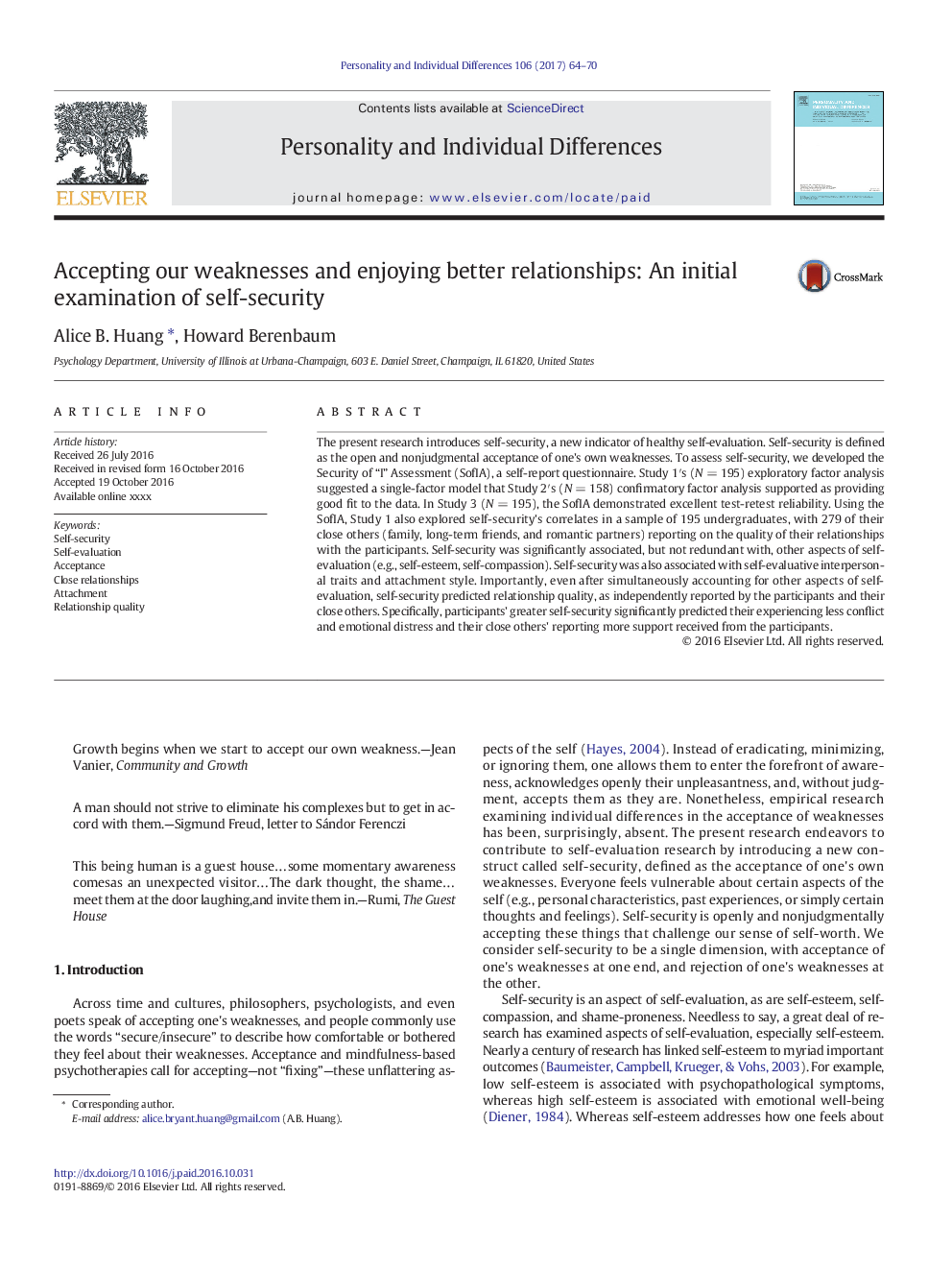ترجمه فارسی عنوان مقاله
پذیرش ضعف های ما و لذت بردن از روابط بهتر: بررسی اولیه از خود امنیت
عنوان انگلیسی
Accepting our weaknesses and enjoying better relationships: An initial examination of self-security
| کد مقاله | سال انتشار | تعداد صفحات مقاله انگلیسی |
|---|---|---|
| 132949 | 2017 | 7 صفحه PDF |
منبع

Publisher : Elsevier - Science Direct (الزویر - ساینس دایرکت)
Journal : Personality and Individual Differences, Volume 106, 1 February 2017, Pages 64-70
ترجمه کلمات کلیدی
خود امنیت، خود ارزیابی، پذیرش، روابط نزدیک، ضمیمه، کیفیت ارتباط،
کلمات کلیدی انگلیسی
Self-security; Self-evaluation; Acceptance; Close relationships; Attachment; Relationship quality;

